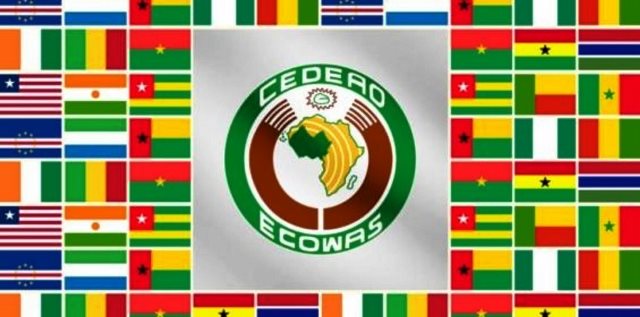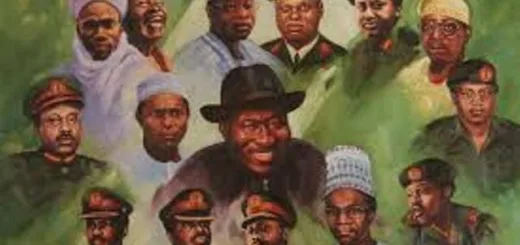ECOWAS: Vision, Member Nations, Aims & Objectives
The Economic Community Of West African States, ECOWAS is a sub-regional organization formed by West African Countries mainly to promote cooperation and development in all economic fields and of contributing to the progress and development of the African continent.

On the historic date of 28th July, 1975, Heads of States and Governments of 15 independent states of West Africa converged in Lagos, where they signed the Treaty, formally establishing ECOWAS.
Member Nations
Member countries making up ECOWAS are: Benin Republic, Burkina Faso, Cape Verde, Cote d’ Ivoire, The Gambia, Ghana, Guinea, Guinea Bissau, Liberia, Mali, Niger, Nigeria, Sierra Leone, Senegal and Togo
Considered one of the pillars of the African Economic Community, ECOWAS was set up to foster the ideal of collective self-sufficiency for its member states. As a trading union, it is also meant to create a single, large trading bloc through economic cooperation.
Integrated economic activities as envisaged in the area revolve around but are not limited to industry, transport, telecommunications, energy, agriculture, natural resources, commerce, monetary and financial issues, social as well as cultural matters.
Expectations of economic integration have always been high and a lot has been accomplished by the regional group since the endorsement of the treaty which gave it the required legal teeth. Going by current assessments, the regional body has exceeded the expectations of its founding fathers. Today, the organisation is being acknowledged globally as a successful regional body, a toast to a workable integration and regional co-existence.
Vision
The Vision of ECOWAS is the creation of a border-less region where the population has access to its abundant resources and is able to exploit same through the creation of opportunities under a sustainable environment. What ECOWAS has created is an integrated region where the population enjoys free movement, have access to efficient education and health systems and engage in economic and commercial activities while living in dignity in an atmosphere of peace and security. ECOWAS is meant to be a region governed in accordance with the principles of democracy, rule of law and good governance.
It was in order to realize this vision unimpeded that the ECOWAS administrative machinery based in Abuja, Nigeria, transformed its Secretariat to a Commission in March 2007. Instead of an Executive Secretary, there is now an empowered President of the Commission with a Vice President and Fifteen Commissioners. By their working, ECOWAS is now pre-occupied with the implementation of critical and strategic programmes that will deepen cohesion and progressively eliminate identified barriers to full integration as envisaged.
Considerable efforts have now been made in harmonizing macroeconomic policies and private sector promotion towards achieving economic integration. These efforts have given rise to some initiatives which include implementation of the roadmap for the ECOWAS single currency programme, monitoring and evaluation of performance and macroeconomic convergence, management of the ECOWAS Macroeconomic Database & Multilateral Surveillance System (ECOMAC) as well as co-operation with other regional and international institutions.
Within a region energized by a common purpose, West African citizens can also take ownership for the new vision of moving from an ECOWAS of states to an ECOWAS of people by 2023.
ECOWAS: Body & Specialized Agencies
The body of ECOWAS is made up of Institutions and Specialised Agencies. The Institutions comprise: The Authority of Heads of States and Government, The Commission, The Community Parliament, The Community Court of Justice, Council of Ministers, Specialised Technical Committees as well as the ECOWAS Bank for Investment and Development (EBID).
The following are ECOWAS Specialized Agencies: West African Health Organization (WAHO), West African Monetary Agency (WAMA), Inter-governmental Action Group against Money Laundary and Terrorist Financing in West Africa (GIABA), ECOWAS Gender and Development Centre, ECOWAS Youth and Sports Development Centre, ECOWAS Water Resources Coordination Centre, West African Power Pool, ECOWAS Regional Centre for Renewable Energy and Energy Efficiency (ECREEE), ECOWAS Regional Electricity Regulatory Authority (ERERA), ECOWAS Infrastructure Projects Preparation and Development Unit (PPDU) as well as ECOWAS Brown Card Scheme.
Aims and Objectives of the Economic Community Of West African States, ECOWAS
The aims and objectives of ECOWAS as were set out under article 2 of the Treaty are as follows:
1. Promotion of Cooperation and Development
To promote cooperation and development in all fields of industry, transport, telecommunications, energy, agriculture, natural resources, commerce, monetary and financial questions and social and cultural matters for the purpose of raising the standard of living of its peoples, of fostering close relations among its members and of contributing to the progress and development of the African continent.
2. Elimination of Customs Duties
To eliminate customs duties and other charges in respect of the importation and exportation of goods between member countries.
3. Abolition of Trade Restrictions
The abolition of quantitative and administrative restrictions on trade among member states.
4. Establishment of Common Tariff
The establishment of a common custom tariff and a common commercial policy towards third countries.
5. Abolition of Obstacles to Free Movement
The abolition as between the member-states of the obstacles to free movement of persons, services and capital.
6. Harmonization of Agricultural Policies
The harmonization of the agricultural policies and the promotion of common projects in the member-states notably in the fields of marketing, research and agro-industrial enterprises.
7. Implementation of Infrastructural Schemes
The implementation of schemes for the joint development of transport, communication, energy and other infrastructural facilities as well as the evolution of a common policy in these fields.
8. Harmonization of Economic and Industrial Policies
The harmonization of the economic and industrial policies of the member-states and the elimination of disparities in the levels of development of member-states.
9. Harmonization of Monetary Policies
The harmonization required for the proper functioning of the community and of the monetary policies of the member-states.
10. Establishment of Common Fund
The establishment of a fund for cooperation, compensation and development.


